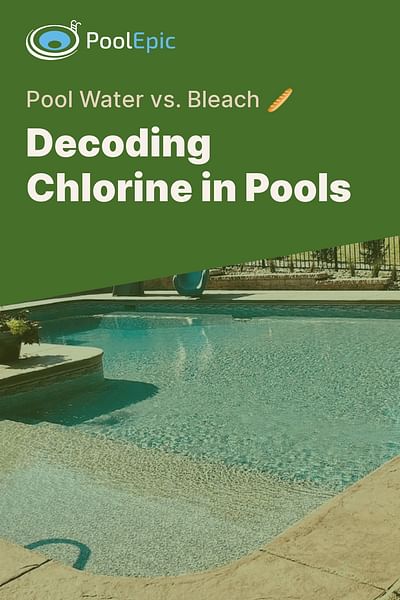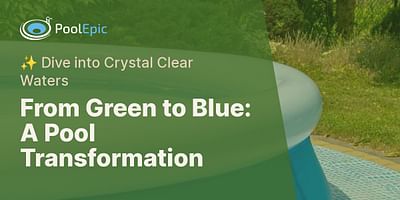Elliott Langosh is a seasoned swimming instructor with a unique passion for inflatable pools. He sees these pools as the perfect gateway for children to learn swimming. Elliott imparts his wisdom through Pool Epic, sharing insightful tips and suggestions based on his extensive professional background.
Yes, chlorine in swimming pools and bleach water are similar in their chemical composition, but there are some important differences to consider. Let me explain.
Both chlorine and bleach contain a form of chlorine called sodium hypochlorite, which is the active ingredient responsible for killing bacteria and keeping the water clean. However, the concentration and formulation of chlorine in swimming pools and bleach water differ.
Chlorine used in swimming pools is typically in the form of calcium hypochlorite or sodium hypochlorite. These forms of chlorine are specifically designed for pool use and are available in granular or liquid form. They are formulated to withstand the high pH levels and sunlight exposure commonly found in pool water. This allows them to effectively sanitize the water and maintain proper chlorine levels.
On the other hand, bleach water that you use for household cleaning purposes contains a lower concentration of sodium hypochlorite compared to pool chlorine. It is also formulated differently and may contain additional additives like fragrances or thickeners, which are not suitable for use in swimming pools. Using bleach water in your pool can lead to imbalanced chlorine levels and may cause damage to the pool liner or equipment.
It's important to note that while bleach water can be used as a temporary solution to sanitize pool water in emergency situations, it is not recommended for regular use. The concentration of sodium hypochlorite in bleach is not designed to maintain the proper chlorine levels required for safe swimming pool water.
To ensure the safety and cleanliness of your inflatable pool, it is best to use chlorine specifically formulated for pool use. This will help you maintain the appropriate chlorine levels and prevent the growth of harmful bacteria and algae.
When adding chlorine to your inflatable pool, always follow the manufacturer's instructions and guidelines. Test the water regularly using a pool testing kit to ensure the chlorine levels are within the recommended range. This will help you maintain a safe and enjoyable swimming environment for you and your family.
In conclusion, while chlorine in swimming pools and bleach water share a common chemical component, they are formulated differently and have distinct purposes. Stick to using chlorine specifically designed for pool use in your inflatable pool to ensure proper sanitation and maintain a safe swimming environment.










